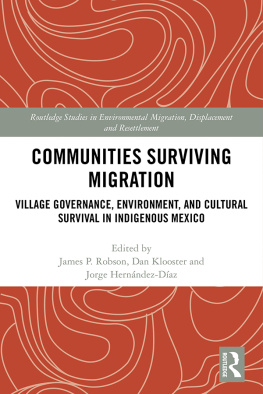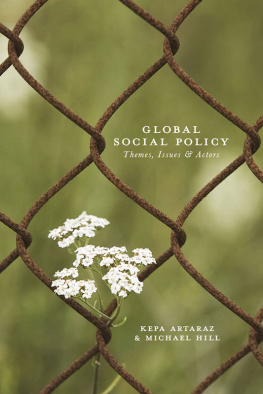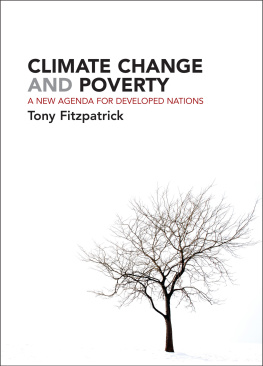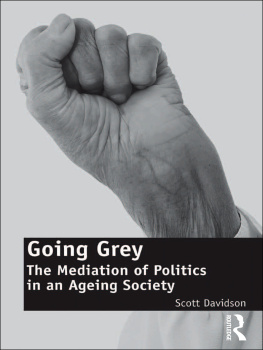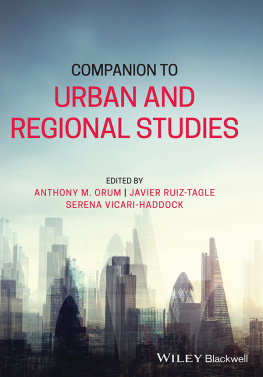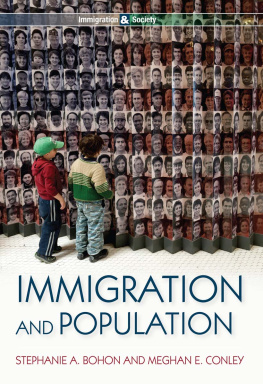DEMOGRAPHY AT THE EDGE
International Population Studies
Series Editor: Professor Philip Rees,
School of Geography, University of Leeds, UK
This series provides an outlet for integrated and in-depth coverage of innovative research on population themes and techniques. International in scope, the books in the series will cover topics such as migration and mobility, advanced population projection techniques, microsimulation modeling, life course analysis, demographic estimation methods and relationship statistics.
The series will include research monographs, edited collections, advanced level textbooks and reference works on both methods and substantive topics. Key to the series is the presentation of knowledge founded on social science analysis of hard demographic facts based on censuses, surveys, vital and migration statistics.
Other titles in this series:
Educational Opportunity
The Geography of Access to Higher Education
Alexander D. Singleton
ISBN 978-0-7546-7867-0
Demography at the Edge
Remote Human Populations in Developed Nations
Edited by
DEAN CARSON
Charles Darwin University, Australia
RASMUS OLE RASMUSSEN
University of Roskilde, Denmark
PRESCOTT ENSIGN
University of Ottawa, Canada
LEE HUSKEY
University of Alaska, USA
ANDREW TAYLOR
Charles Darwin University, Australia
First published 2011 by Ashgate Publishing
Published 2016 by Routledge
2 Park Square, Milton Park, Abingdon, Oxon OX14 4RN
711 Third Avenue, New York, NY 10017, USA
Routledge is an imprint of the Taylor & Francis Group, an informa business
Copyright 2011 Dean Carson, Rasmus Ole Rasmussen, Prescott Ensign, Lee Huskey and Andrew Taylor.
Dean Carson, Rasmus Ole Rasmussen, Prescott Ensign, Lee Huskey and Andrew Taylor have asserted their right under the Copyright, Designs and Patents Act, 1988, to be identified as the editors of this work.
All rights reserved. No part of this book may be reprinted or reproduced or utilised in any form or by any electronic, mechanical, or other means, now known or hereafter invented, including photocopying and recording, or in any information storage or retrieval system, without permission in writing from the publishers.
Notice:
Product or corporate names may be trademarks or registered trademarks, and are used only for identification and explanation without intent to infringe.
British Library Cataloguing in Publication Data
Demography at the edge : remote human populations in
developed nations.
1. Population research--Developed countries.
2. Demography--Developed countries. 3. Sparsely populated
areas--Developed countries.
I. Carson, Dean.
304.6091724-dc22
Library of Congress Cataloging-in-Publication Data
Demography at the edge : remote human populations in developed nations / [edited] by
Dean Carson [et al.].
p. cm.
Includes bibliographical references and index.
ISBN 978-0-7546-7962-2 (hardback) -- ISBN 978-0-7546-9915-6
(ebook) 1. Population research--Developed countries. 2. Demography--Developed
countries. 3. Sparsely populated areas--Developed countries. I. Carson, Dean.
HB850.5.D43D46 2011
304.6091724--dc22
2010045319
ISBN 978-0-754-67962-2 (hbk)
ISBN 978-1-315-57648-0 (ebk)
Contents
Dean Carson, Prescott C. Ensign, Rasmus Ole Rasmussen and Andrew Taylor
Andrew Taylor, Lauren Bell, Per Axelsson and Tony Barnes
Andrew Taylor
Kate Golebiowska, Marko Valenta and Tom Carter
Kim Johnstone, Tony Barnes and Paul A. Peters
Catherine Martel, Dean Carson, Emma Lundholm and Dieter Mller
Marit Aure, Anne Britt Flemmen and Kate Golebiowska
Andrew Taylor
Andrew Taylor, Gary Johns, Gregory Williams and Malinda Steenkamp
Prescott C. Ensign, Audrey Giles and Maureen G. Reed
Sean Markey, Keith Storey and Karen Heisler
Rasmus Ole Rasmussen
Bilal Barakat, Dean Carson, Andrew Taylor, Ranu Basu and Lei Wang
Doris Schmallegger, Sharon Harwood, Lee Cerveny and Dieter Mller
Nick McTurk and Carlos Teixeira
Sharon Harwood, Dean Carson, Elizabeth Marino and Nick McTurk
Dean Carson
List of Figures
List of Tables
Notes on Contributors
Marit Aure is Associate Professor of Sociology, Political Science and Community Planning at the University of Troms, Norway, Department. She holds a MA and PhD in Planning and Community Studies from the University of Troms, Norway. Her research field is local and regional development, national and international migration including RussianNorwegian labour migration, borders and demography, coping processes, transnationalism and gender studies. She is mainly qualitatively trained and works cross-disciplinary, drawing on perspectives from human geography, sociology, political science and anthropology. Her current research focuses on high skilled migrants and integration in high skilled labour. She has published in journals and books, for instance, in The Reflexive North and Sosiologi I dag [Sociology Today].
Per Axelsson, Doctor in History and researcher at the Centre for Sami Research at Ume University, Sweden. His research interest and recent publications focus on medical history and historical demography of the Sami and the settlers in northern Sweden during the time of colonisation, Sami reindeer herdings adaption to climatic and societal change and also the history of polio during the twentieth century. He is the co-editor of Indigenous Peoples and Demography. The Complex Relation between Identity and Statistics (Berghahn books, forthcoming).
Bilal Barakat is an educational statistician at the Vienna Institute of Demography and the International Institute for Applied Systems Analysis (IIASA) World Population Program, which he joined in 2008. After undergraduate and graduate degrees in mathematics, he obtained a doctorate at Oxford Universitys Department of Education. His current research interest focuses on educational statistics (incl. methodology), modelling and planning, especially in, but not limited to, developing countries. He has worked as a consultant on various aspects of international and UK educational development, including higher education quality assurance, education in post-conflict settings and teacher training and recruitment, for UNDP, UNESCO, the World Bank and for national agencies in the UK.
Tony Barnes. Following a university education in mathematical statistics and computing science in the 1960s and early 70s, Tony has pursued a wide-ranging professional career, with 15 years in the UK and the last 27 years in Australia. Variously an academic, public servant, government research scientist and CEO of a large multi-centre research organisation, he has taught, conducted and managed research in applied statistics, public heath, epidemiology, agronomy and, most recently, demography. Now retired from full-time employment, Tony maintains professional associations with Charles Darwin Universitys Population and Tourism Research Group as a research adjunct where he pursues his interests in the fascinating extremes of the demography of Australias remote Indigenous populations and the ever-changing and truly dynamic population of Australias Northern Territory.


